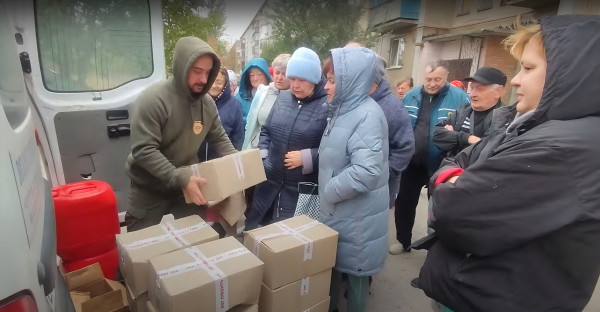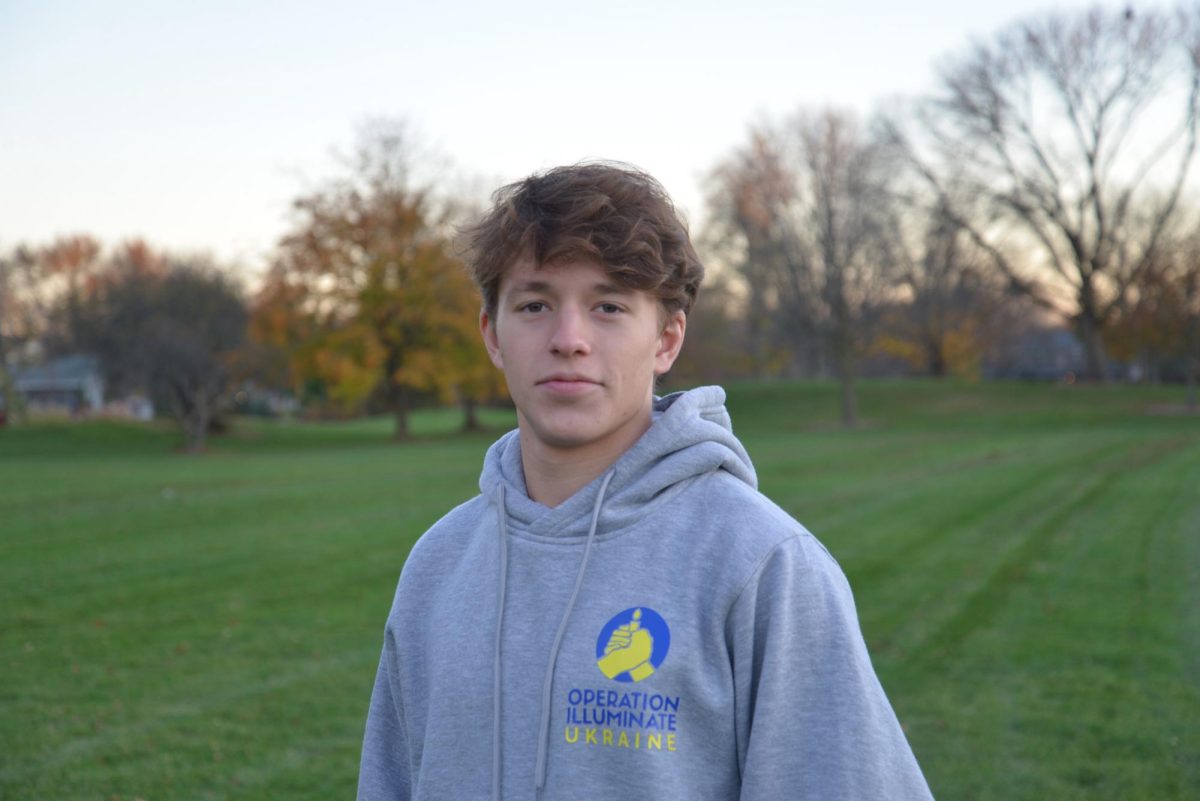Nearly two years into the ongoing Russia-Ukraine war, senior Andrew Lazovski traveled close to the front lines of the conflict from Oct. 7-18 to provide humanitarian aid to Ukrainian civilians who need it most.
The mission was part of Operation Illuminate Ukraine, a nonprofit project founded by Lazovski. It provided $35,000 in humanitarian aid to Ukraine’s Kherson region.
But the decision wasn’t only professional, according to Lazovski. Instead, it was deeply personal, rooted in a complex family history tied to Russia. His parents fled the Soviet Union before he was born and many close relatives of his still live in Russia today.
“When I started doing humanitarian work, my entire Russian side of the family tried to disassociate with me,” Lazovski said. “They called me a traitor [and] told me if I ever went to Russia, I could face a prison sentence of more than 20 years.”
Others in his family were more supportive of his mission, including sophomore Anna Lazovski, his sister.
“I am glad that he took a chance to help people in need,” Anna Lazovski said. “My brother has always been very compassionate.”
For Andrew Lazovski, this wasn’t just about opposing a government or a war — it was about making a personal stand for the people caught in the crossfire.
“The people who are left behind are usually elderly and children,” Lazovski said. “They can’t leave because of medical or financial reasons. They’re forced to stay in these dangerous areas near the frontlines.”
Lazovski’s decision left many in his family, including his sister, worried for his safety.
“I was really afraid when he first told me he was leaving,” Anna Lazovski said. “I had heard about horrible stories happening in war zones like the ones he was going to.”
However Andrew Lazovski felt that his actions were necessary for the civilians of Ukraine, many of whom are often neglected by large organizations as the ongoing violence makes these zones too risky for aid.
He partnered with Steel Ants, a Ukraine-based NGO, to ensure the aid was distributed safely.
“Once the Kakhovka Dam [in Kherson, Ukraine] did explode, people were telling me on the ground about the lack of help; there was help coming in, but a very small amount of it, not sufficient for the amount of people there,” Lazovski said. “They had no food, no water, no electricity, it was just impossible for them to continue surviving in such an environment. I knew that there had to be something that could be done.”
After flying into Poland and traveling to Kyiv, the capital of Ukraine, Lazovski and his team expected to see signs of conflict throughout the country. But once they reached Mykolaiv where they began their work, his team was confronted by the weight and reality of being in an active war zone.

“Once we entered Mykolaiv, the air raid sirens turned on,” Lazovski said. “It was the scariest moment because of the realization that this place wasn’t safe… this is serious.”
Lazovski and his team also faced the challenge of language. In a country where language and identity can make one’s presence feel like an immediate threat, they had to adapt quickly. Many Ukrainians, particularly in the western regions, view Russian speakers with deep suspicion, according to Lazovski.
“If we weren’t properly identified, the military or even local secret service might mistake us for Russian operatives,” Lazovski said. “People don’t always think before they shoot, especially in times of war.”
Despite these challenges, Lazovski remained committed to his mission.
“I did humanitarian work in the beginning to create this idea where war is not the best solution,” Lazovski said. “These humanitarian missions, we have to do them because we’re the only ones that are available to help these people who are the most vulnerable.”




